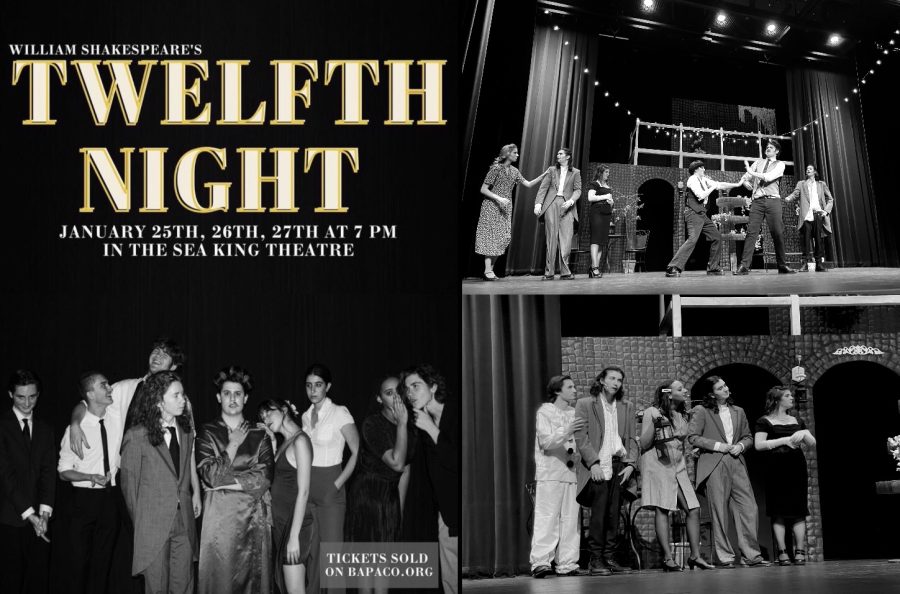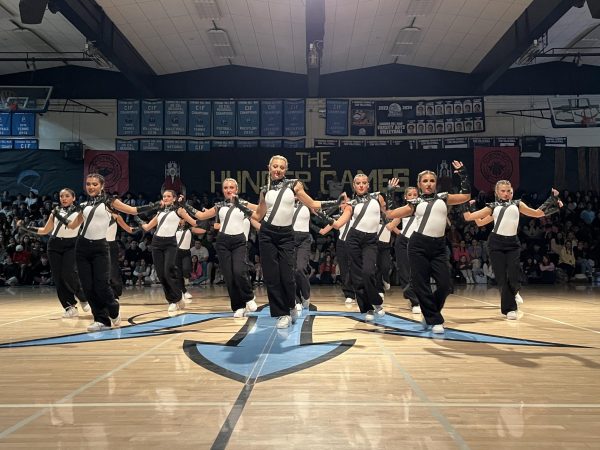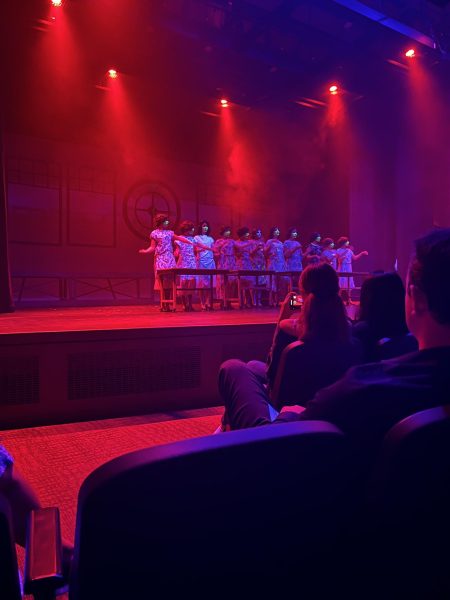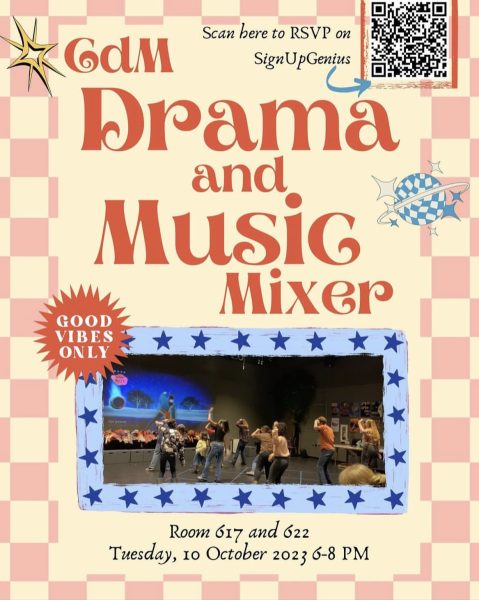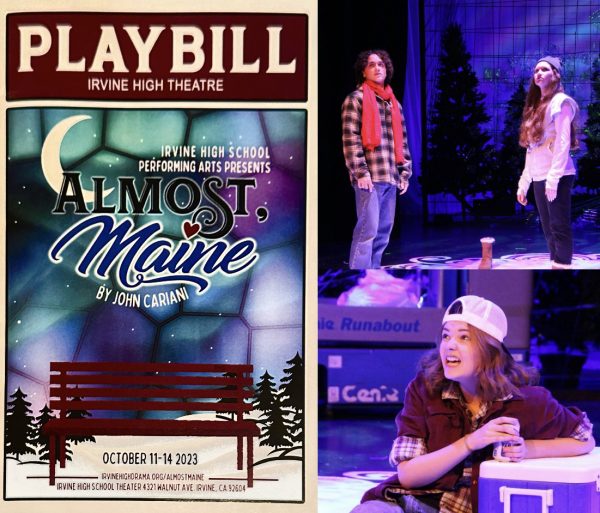CdM’s Production of “Twelfth Night”
On the evenings of January 25th, 26th, and 27th CdMHS’s drama department showcased “Twelfth Night” written by none other than William Shakespeare himself. Putting on such a production called for CdM’s Technical Theater and Drama 4 classes to work collaboratively. Beginning the production process of the play in October, Drama 4 was quickly followed by Tech Theater as they joined in on the feat in November.
Shakespeare’s satirical romantic comedy “Twelfth Night”, follows two twin siblings, Viola and Sebastian, who become shipwrecked and mistaken that each has drowned in the Adriatic Sea. Rescued separately by pirates, they are taken in by the people of Illyria. Viola disguises herself as a man thinking that she would never make it on her own. Finding work for Count Orsino, Viola soon finds herself falling in love with him, only he loves another, Fair Olivia. Mourning the death of her brother Fair Olivia rejects any suitor wishing to marry her out of respect until Cesario who is secretly Viola in her very own camouflage. Courting Olivia on the behalf of Orsino, Cesario (Viola) finds herself tangled up in a love triangle. Amidst this love, unruly shenanigans occur to accomplish Shakespeare’s recurring theme of amusing the lower class. The confusion comes a foot in the very last scene of the play when it is revealed who is who and who exactly loves who. Describing this chaotic plot in his own words is Emmet Eilers a senior, who remarks, “it’s all about confusion everyone is confused about whatever they are doing and it just leads to hysterical laughter from the audience.”
Ella Avital played Malvolia in the show and her favorite part was the last week before it premiered when it all came together, “We were kind of having a hard time with it and then just seeing everybody finally getting in the spirit of performing it and realizing that we have to perform the show, it’s coming up. It was cool. I’ve never seen people kind of get together that quickly and be like ‘Okay, the time has come. We have to do this.’” Her biggest challenge was learning her lines, especially her monologue in the middle of the show, “… it’s probably the biggest monologue I’ve ever had in a show, let alone a Shakespearean show, so that’s been really hard.” Another challenge was that fact that the play is a comedy, “The only other Shakespeare I’ve done is Macbeth and that was a drama, so it was hard to gauge the audience’s reaction and not let their reaction bog down the performance because with comedies the audience needs to be responsive or it’s really hard to have confidence with what you’re doing. But with a drama it’s a lot easier because you don’t care about their reaction because you’re not expecting them to laugh.” Alex Wood, who played Duke Orsino and was a part of the costumes team, felt the comedy aspect was the best part because “… it shows people that Shakespeare can be funny and entertaining. For me, I was super intimidated staring at it because I was like ‘Oh, all these words, I don’t know what it means.’ I thought it was just going to be boring, because Middle English and all, but it ended up being really fun.” He also struggled with memorizing his lines “… because it’s not what we’re used to, but I think everything else went pretty smooth.”
Freshman Emma Figueroa was the Stage Manager (SM) for the play and her favorite part was making the prompt book. A prompt book entails all the cue sheets plots that are needed to make a play run smoothly, as well as an annotated script of when everything is supposed to happen so the SM can follow along during the show. “As a stage manager, I call the show which is calling all the audio cues, light cues, and making sure everyone is in order and just being like the parents of the actors. We have to be on top of everything.” The hardest part of the show was, “Working with the audio cues and trying to get them in order on the prompt book and in general and when to call them.”
CdM’s drama department entranced its audience with their production of “Twelfth Night” by providing them with actors and actresses who fully understood the gravity of their characters. By doing so, audience members were left in awe so says Mrs. Montez the resident AP Statistics teacher on campus who remarks that “[she liked that] it was still a Shakespearean play but with a 20’s twist.”


